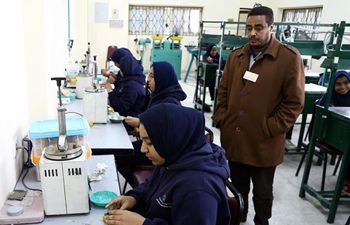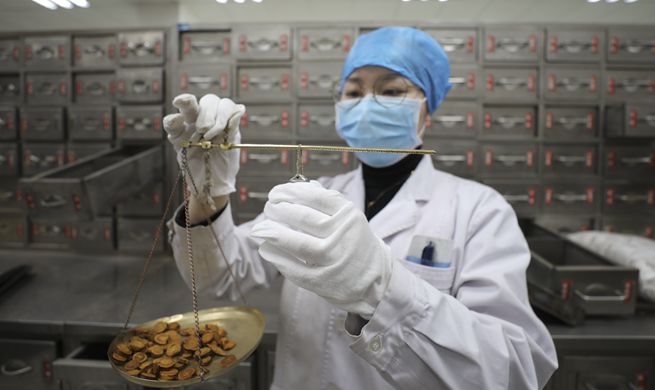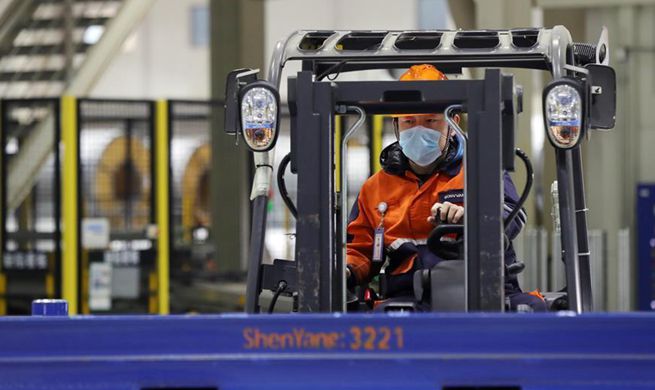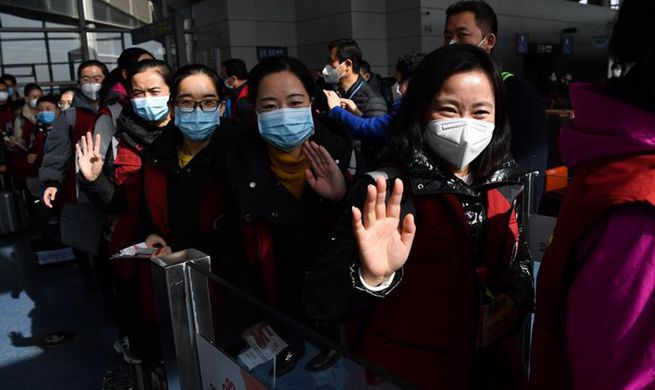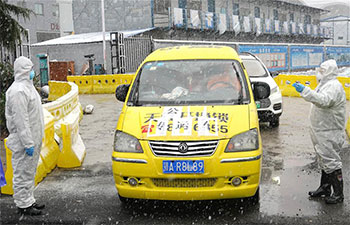CAPE TOWN, Feb. 18 (Xinhua) -- President Cyril Ramaphosa on Tuesday stressed the need for a speedy, robust and transparent decision-making process to attract more infrastructure investment.
South Africa's public sector policy and regulations are among some of the most elaborate and prohibitive in the world, thus causing the unintended consequences of delaying and derailing investments at great cost to the economy, Ramaphosa said at a meeting with leaders of development finance institutions in Cape Town.
The meeting brought together, for the first time, government officials, financiers - including multilateral development banks and development finance institutions - organized business and infrastructure-oriented industry players to discuss public sector infrastructure.
Overall infrastructure investment needs to grow to 30 percent by 2030 to achieve the growth targets set by the government, said Ramaphosa.
These targets include a 5.5-percent year-on-year economic growth, 6-percent unemployment rate, 30-percent gross fixed capital formation to GDP.
"However, economic growth projection is expected to remain below one percent this year and unemployment continues to be on the rise, now at a staggering 29 percent, with youth unemployment being even higher," the president said.
Gross fixed capital formation remains tepid, at 18 percent of GDP, while public infrastructure spending has been declining in recent years, currently only amounting to about 13 percent of total spending, he said.
The fiscal space has been further constrained by the vast contributions provided to rescue state-owned enterprises (SOEs) such as electricity utility Eskom and South African Airways (SAA), according to Ramaphosa.
In recent years, the government has witnessed the accelerated deterioration of some of its most important assets required to improve the quality of life of the people, the president said.
The rapid deterioration of municipal water infrastructure such as waste water treatment works and water treatment plants undermines the economy and threatens access to basic services, he said.
The disintegration of provincial and municipal roads will affect the efficiency of the road network, stunt economic growth and increase the cost of transport for all road-users, said Ramaphosa.
The story of failing power plants is well documented, causing great harm to the economy and raising the country's risk profile, he said.
He called for extraordinary measures to respond to these challenges and return the country to a path of growth.
Multilateral development banks, development finance institutions and the private sector all have a critical role in financing and implementation of infrastructure investment, Ramaphosa said.



